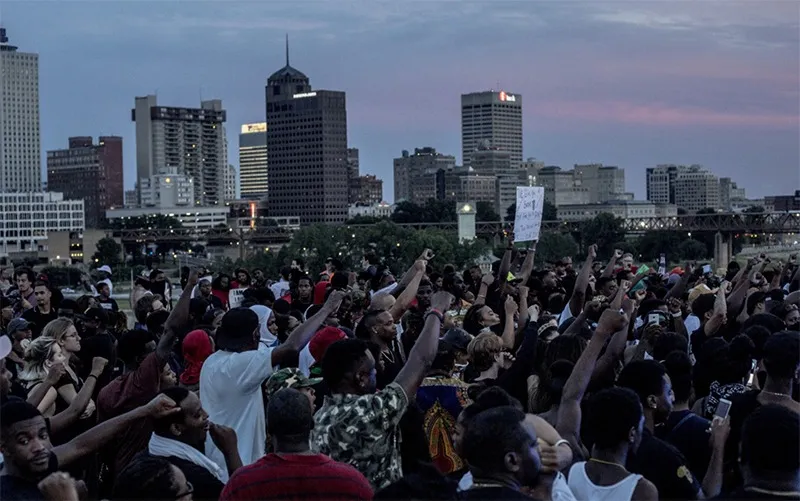“The July 10, 2016, protest that shut down the Hernando DeSoto Bridge threw solidarity on the streets of Memphis into sharp relief. The city hadn’t seen spontaneous support for a cause on that scale for nearly half a century.
Dr. Martin Luther King Jr.’s support of the 1968 sanitation strikes in Memphis marked the height of an era of policy-challenging civil disobedience in the city — and served as the backdrop to King’s assassination. The subsequent decades brought both institutional and cultural calls for more compliant protests; city laws required protesters to pull permits, and gatherings without those permits were limited to fewer than 25 people.
As that long night last July settles into our collective memory, the story of the thousand residents of this majority-black city who came together to march against the deaths of two black men in other cities is unique. Their impromptu momentum kept traffic at a standstill across the six lanes of Interstate 40 that cross the Mississippi River for several hours.
Collective experience allows us “to build a narrative picture of the past and through this process develop an image and an identity for ourselves.”
In the crowd, people explained why they showed up — sometimes at the top of their lungs over fists and cell phones raised high, and sometimes in the face of the Memphis police officers, who hemmed protesters in on both eastbound and westbound lanes. There was a discordant collection of sounds: spirituals, chants, profanity, sirens and bullhorns, but it was peaceful.
For testimonies by folks who witnessed that catharsis, in their own words and, sometimes, images. Only the people who gathered in that place and time can tell what took place high above the Mississippi River’s southern flow. READ MORE:”
